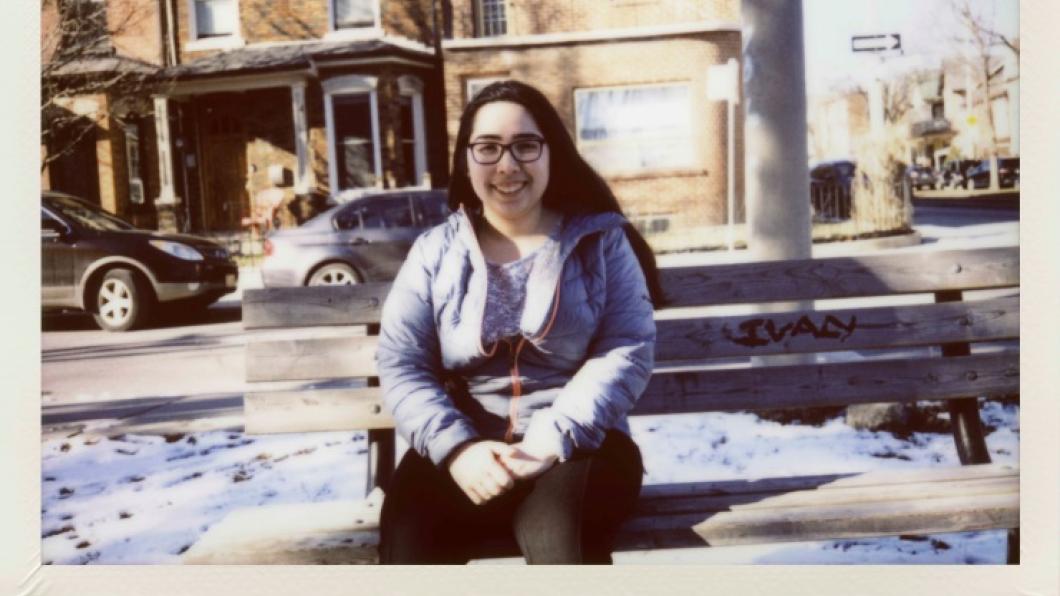
The importance of creative expression, and having a creative voice
By Lexin Zhang
For me, and maybe for you as well, it’s easier to view life as a series of places. We move from mothers’ wombs to hospitals, to small schools, then to bigger and bigger schools, to jobs, to families to different homes and maybe even to different countries. It’s easy to dismiss the complexities of growth, and underestimate the importance and challenges of transitions.
Forming one’s identity, discovering where you belong and becoming an independent, contributing member to society isn’t an easy feat, to say the least. For a young person with a disability, transitions can present additional challenges – challenges not enough people talk about.
Thus, in an effort to bring about an opportunity for young people with disabilities to creatively express themselves on the topic of transitioning from pediatric health care to adult health care, Holland Bloorview Kids Rehabilitation Hospital partnered with the Koffler Center of the Arts for the ‘Koffler Project.’ Nine Holland Bloorview Youth Leaders (age 18-26), including myself, participated.
“This project enabled youth to engage in something that was both individual and collective,” explained Mary Anderson, the project lead. “It included professional artists in the Toronto arts community, a professional exhibition space, media representation, and a digital platform that showcased the work. It was a unique, multi-faceted program that celebrated what the youth had to say, and it did so in a creative and dynamic way.”
From speaking to other participants, I found there were common challenges in the process of creating our pieces. Samantha, a participant who submitted a piece of writing, was reluctant to take part in this project.
She explained what many of us thought initially: “I kept thinking, ‘What do I have to say about transition?’ However, when I started writing I realized I did have things to say.
I believe this project definitely demonstrated the importance of creative expression, and having a creative voice. Through this process of creation, we were given a chance to reflect on our transitions, and ourselves as individuals – something we don’t really do when we’re actually crafting words or creating images. Alanna, a participant who made digital art, felt that it was “inspiring to look back on [her] journey and to see how far [she’s] come.
It should also be said that displaying our art was just as impactful for us as it was creating it. Effie, who provided a collection of photographs, realized that it’s “okay to share [her] experiences of living with a disability because it could help others who are going through similar situations.”
“I learned to accept that having a disability is not a negative thing but a positive one and that it’s okay to fully embrace it,” added Effie. This is what art does – whether you’re the creator or the admirer, it brings about empathy, understanding, and acceptance.

Personally, whenever I create art (be it creative writing or visual art) and express my feelings on my experience with disability, I get a step closer to loving that part of myself. There’s a sense of accomplishment when I feel I’ve accurately articulated myself. Transition makes me independent, though sometimes that feels more like being alone. However, when I saw the exhibit come together, I was able to see the similarities in our experiences.

“The journey of growing up with a disability or acquired injury is a unique one,” said Holland Bloorview staff lead, Dolly Menna-Dack. “It asks those that are preparing and planning for transition to adult life and adult health care services to take on an added layer of uncertainty, to manage changes in their funding supports, school supports, and their health care. This is on top of trying to figure out what they might like to do for a career, study in post-secondary school, and take on adult responsibilities.”
No two transitions are the same, and it can be complicated and challenging, so for those approaching the transition from pediatric health care to adult health care here are some words of encouragement from the project’s participants:
“Have a good support system and you’ll be fine.” – Alanna
“Don’t be afraid to ask as many questions as you need to both the pediatric health care team and the adult team to be confident and fully ready for it. There's no such thing as too many questions.” – Effie
“It is okay to be nervous and a little bit afraid.” – Samantha
Adding to this, my advice to other youth with disabilities: actively try to discover and understand your own health and what your needs are. Keep in mind that both your health and needs change over time. Advocate for yourself, diligently.
Be sure to visit Holland Bloorview when the art exhibit arrives on December 3. Initiatives like this are so important, so thank you to the Koffler Centre of the Arts, and to everyone involved.
And if you can, consider giving a donation to Holland Bloorview Foundation. You gift will help support more events and creative projects like this that enable kids and youth with disabilities to learn more about themselves and become who they want to be.
This particular partnership was made possible through Holland Bloorview’s Transitions Strategy, which is generously supported by community donors, including David and Lynn Coriat and friends.